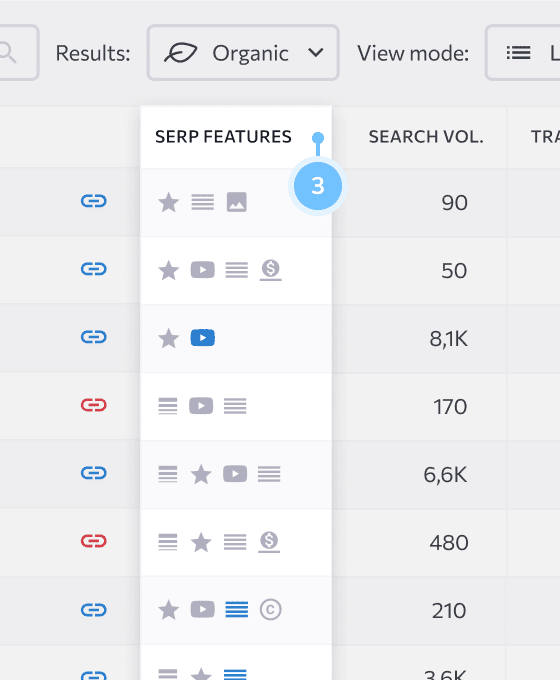How can one ascertain a website's position in search results optimized for mobile devices? Tools designed for this task offer critical insights for website owners and marketers.
A tool for assessing a website's placement in mobile search results is a crucial element in digital marketing strategy. Such tools analyze how a site ranks across various mobile search engines (like Google). This involves evaluating factors like keyword relevance, page load speed, and mobile-friendliness. For instance, a tool might display a website's ranking for specific keywords on different mobile devices (phones and tablets), indicating areas for improvement in optimization strategies.
These tools are essential for maintaining and enhancing a website's visibility to mobile users. By identifying a site's current standing in mobile search results, strategies can be developed to enhance rankings. This, in turn, drives more organic traffic, leading to improved engagement and, potentially, conversion rates. Understanding mobile search algorithm nuances and how a site is performing relative to competitors is vital for a website's continued success in the digital marketplace. Accurate mobile ranking data helps businesses adapt and refine their approach, maintaining a strong position in the constantly evolving mobile search environment.
Moving forward, this examination will delve into the specific functions and uses of ranking tools for mobile searches. We will explore best practices and common pitfalls in mobile optimization, providing concrete strategies for enhancing online presence.
Mobile Rank Checker
Accurate assessment of a website's mobile search ranking is crucial for optimizing online visibility and attracting mobile users. A mobile rank checker facilitates this process, offering vital data for strategic decision-making.
- Performance Measurement
- Keyword Analysis
- Competitor Benchmarking
- Algorithm Adaptation
- User Experience (UX)
- Data-Driven Optimization
Mobile rank checkers provide data on a website's mobile search rankings, allowing for identification of areas needing improvement. Analyzing keyword performance reveals opportunities for optimization. Comparing rankings against competitors allows for targeted strategies. Understanding algorithm changes is crucial for maintaining visibility. Evaluating user experience components like page load time directly affects mobile search rankings. The insights from data-driven optimization, in turn, leads to improvements across these parameters.
1. Performance Measurement
Accurate performance measurement is fundamental to effective mobile search optimization. A mobile rank checker, by its nature, relies heavily on performance metrics to assess a website's position in search results. Understanding these metrics is crucial for identifying areas of strength and weakness, enabling strategic improvements.
- Ranking Fluctuation Analysis:
Monitoring the daily, weekly, and monthly fluctuations in search rankings offers insights into the performance of optimization efforts and the impact of algorithm updates. Significant drops suggest issues that require immediate attention, such as algorithmic changes or technical errors. Conversely, consistent improvement indicates the efficacy of current strategies. Tools that track ranking changes over time provide crucial data for evaluating effectiveness and guiding future adjustments.
- Page Load Time Metrics:
Assessing page load times is essential for user experience (UX). Mobile rank checkers often incorporate these metrics, as slow loading pages negatively affect rankings. Understanding and mitigating load times is vital for maintaining and improving position. Tools will pinpoint sections of a website contributing to sluggish loading, enabling developers to implement solutions like optimized images or code compression.
- Mobile-Friendliness Scores:
Evaluations of mobile-friendliness, encompassing aspects like responsive design and proper display on various devices, are directly integrated into mobile search ranking algorithms. Mobile rank checkers will present these scores, highlighting areas for improvement in website design and structure. Addressing usability issues identified by these checks is paramount for attaining higher rankings.
- Click-Through Rate (CTR) Analysis:
Tracking the rate at which users click on search results links for a specific website reveals user engagement. A mobile rank checker might include CTR data for specific keywords and pages, offering insight into how a website attracts and engages mobile users. A consistently low CTR can indicate issues with the website's title tags, descriptions, or the overall presentation of search results.
In conclusion, performance measurement is inseparable from the function of a mobile rank checker. By providing data points like ranking fluctuations, page load times, and mobile-friendliness scores, these tools facilitate an in-depth understanding of a website's strengths and weaknesses. This enables proactive adjustments to enhance a website's visibility and its overall performance within the competitive mobile search environment.
2. Keyword Analysis
Keyword analysis is integral to the functionality of a mobile rank checker. A mobile rank checker's effectiveness hinges on its ability to assess how well a website is optimized for relevant keywords. Proper keyword analysis within the context of mobile search is crucial because mobile users often employ shorter, more specific search queries compared to desktop users. Identifying and targeting these precise search terms is paramount for achieving high mobile rankings. For example, a user searching for "Italian restaurant near me" on a mobile device is more likely to find results relevant to their immediate location than a user searching on a desktop computer using a less specific phrase like "Italian restaurants in the city."
Effective keyword analysis involves more than just identifying popular search terms. It necessitates a deep understanding of user intent. A tool capable of accurate keyword analysis would analyze search volume, competition, and user intent, providing actionable insights for optimizing website content. These insights are pivotal to a website's mobile search performance. A mobile rank checker, leveraging this analysis, would recommend relevant keywords for web pages, product listings, or blog posts, improving the site's visibility for specific searches executed on mobile devices. By incorporating this understanding into its functionality, a mobile rank checker can assist website owners in refining their optimization efforts.
In summary, accurate keyword analysis within a mobile rank checker is essential for achieving optimal mobile search visibility. Effective mobile optimization hinges on the capability of a tool to accurately identify and utilize relevant keywords specific to mobile search behavior. This requires understanding user intent and search context. This leads to improved user experience, better search engine rankings, and ultimately, increased organic traffic for websites.
3. Competitor Benchmarking
Competitor benchmarking is a critical component of a comprehensive mobile rank checker. Understanding competitors' mobile search rankings, strategies, and content provides valuable insights for optimizing a website's own mobile presence. This approach enables proactive identification of strengths and weaknesses relative to the competition and facilitates targeted improvements to attain higher rankings. A strong correlation exists between competitor analysis and mobile rank improvement. For instance, if a competitor consistently ranks high for a particular keyword on mobile, it suggests the importance of incorporating similar content or optimization strategies into one's own website.
Practical applications of competitor benchmarking within a mobile rank checker include identifying dominant keywords, evaluating content quality, and assessing technical implementations. Analysis of competitor websites reveals the type of content that resonates with mobile users, indicating opportunities for generating similar content. Comparing competitor mobile sites reveals common technical elements contributing to high rankings, such as fast loading speeds and responsive designs. By observing competitor strategies, one can anticipate upcoming trends and adjust the website's approach accordingly. For example, a competitor focusing heavily on location-based services might signal the importance of local SEO optimization to achieve similar rankings. Examining competitors' mobile websites also unveils potential gaps in one's own strategy, prompting improvements in usability, mobile-friendliness, and content relevance for mobile search queries.
In essence, competitor benchmarking within a mobile rank checker empowers informed strategic decisions for mobile optimization. It allows for a proactive and data-driven approach to improving a website's mobile search visibility. While competition is a constant factor, a thorough understanding of competitors positions, strategies, and implemented optimizations provides a vital perspective, ultimately driving higher mobile search rankings. Challenges might arise from the dynamic nature of the competitive landscape, requiring continuous monitoring and adaptation. However, the insightful data gained through competitor benchmarking remains a cornerstone of successful mobile search optimization.
4. Algorithm Adaptation
Search engine algorithms, particularly those focused on mobile searches, are in constant evolution. Modifications to these algorithms directly impact website rankings. A mobile rank checker, to be effective, must incorporate the ability to recognize and respond to these algorithm adaptations. Failure to adapt to these changes can result in significant drops in search ranking, and diminished visibility to mobile users.
The importance of algorithm adaptation as a component of a mobile rank checker lies in its predictive capacity. By constantly monitoring algorithm updates, a mobile rank checker can anticipate adjustments and changes in search ranking criteria. This enables proactive adjustments in website optimization strategies, preemptively addressing potential ranking issues before they manifest. Real-world examples include instances where Google updates its mobile-first indexing algorithm. A mobile rank checker incorporating algorithm adaptation can identify these changes and help website owners quickly adjust their mobile websites to match the updated ranking signals, preventing drops in visibility. This predictive capability is essential for maintaining a consistent and high ranking within the competitive mobile search landscape.
Practical applications of understanding algorithm adaptation within the context of a mobile rank checker are numerous. Real-time monitoring of algorithm shifts allows website owners to identify emerging patterns in ranking behavior. This knowledge empowers the identification of relevant keywords, optimization techniques, and content formats aligning with current algorithm preferences. This responsiveness to algorithm changes ensures a website remains aligned with the standards set by search engines, sustaining and improving its visibility in mobile search results. Successfully adapting to algorithm updates often results in a more user-centric website design, aligning with the current search algorithm focus on user experience. Ultimately, this understanding allows for a sustained and higher position in mobile search results, ensuring visibility to the target audience.
5. User Experience (UX)
User experience (UX) is inextricably linked to mobile search ranking. A mobile rank checker's efficacy depends heavily on understanding how users interact with a website on mobile devices. Positive UX translates into higher rankings, while poor UX can lead to lower visibility. This relationship necessitates a meticulous examination of key UX facets and their influence on mobile search performance.
- Page Load Speed
Fast page loading is paramount for positive mobile user experience. Slow loading times lead to user frustration and abandonment. Mobile users are accustomed to rapid response times, and a site that takes excessive time to load is likely to rank lower. A mobile rank checker can identify and highlight slow-loading pages, guiding improvements in website optimization. Examples include compressing images, minifying code, and leveraging caching techniques.
- Mobile-Friendliness
Responsive design is essential. A site must adapt seamlessly to various screen sizes and resolutions. Mobile-friendliness scores are a critical factor in mobile search rankings. A mobile rank checker will often integrate tools to assess if a site is fully responsive, adjusting to different device formats and sizes. Improperly formatted content can lead to a poor mobile user experience.
- Navigation and Structure
Intuitive navigation is crucial for mobile users, often relying on touchscreens and smaller displays. Clear and concise navigation should be prioritized. A mobile rank checker can evaluate aspects of site architecture impacting user experience, such as site map accessibility and logical content hierarchy. Complex, difficult-to-navigate sites will likely suffer in mobile search rankings.
- Visual Appeal and Accessibility
Visually appealing interfaces contribute significantly to user satisfaction. A site's design, including color schemes, imagery, and layout, should optimize readability and engagement. Accessibility considerations, like font sizes and color contrast, contribute to a positive UX. A mobile rank checker can aid in assessing website usability and identify design elements that might impede mobile users from engaging with the site's content effectively.
Ultimately, a mobile rank checker that considers UX factors will provide a more comprehensive analysis of a website's suitability for mobile users. By identifying and addressing areas of poor UX, website owners can improve their mobile search ranking and enhance user engagement. A strong UX strategy, evident through proper mobile optimization, translates to higher mobile search rankings.
6. Data-Driven Optimization
Data-driven optimization, a cornerstone of successful digital marketing, is intrinsically linked to the efficacy of a mobile rank checker. Effective optimization strategies rely heavily on actionable insights derived from data. A mobile rank checker, in this context, serves as a crucial tool for gathering and interpreting performance data, informing decisions that enhance mobile search ranking. Data analysis enables identification of optimization opportunities, enabling informed adjustments to website content, structure, and technical elements.
- Ranking Data Analysis:
Thorough analysis of mobile search rankings, provided by a mobile rank checker, offers insights into a website's performance against competitors and for specific keywords. Trends in ranking fluctuations indicate areas requiring immediate attention, such as algorithmic changes or technical glitches. This analysis allows for the identification of keywords yielding satisfactory performance and those needing optimization, guiding content strategies and technical adjustments accordingly.
- User Behavior Tracking:
Data gathered from user interactions on a mobile website (e.g., bounce rate, time on page, click-through rate) provides invaluable insights. By analyzing user behavior patterns, one can pinpoint areas of poor user experience impacting rankings. Identifying and addressing these issues is vital for optimizing the mobile user journey and improving ranking metrics as seen by a mobile rank checker.
- Keyword Performance Metrics:
Tracking keyword performance allows for a deeper understanding of how different terms impact search visibility. A mobile rank checker frequently provides data on keyword rankings, search volume, and competition. Analyzing this data helps prioritize keyword strategies for maximum impact. This data can guide content updates and the introduction of new keywords with the potential to elevate rankings.
- Competitor Analysis:
Benchmarking against competitors based on mobile search data provides essential insight. Analyzing competitors' successful keywords, ranking patterns, and website structure informs strategic decisions for improvements. Data visualization tools integrate easily with mobile rank checkers, allowing for comprehensive comparisons and highlighting areas where the website can surpass competitors' performance.
In conclusion, data-driven optimization is inextricably linked to a mobile rank checker's function. The analysis of ranking data, user behavior, and keyword performance, coupled with competitor benchmarking, all provide valuable insights for refining a website's mobile optimization strategy. This data-driven approach enables continuous improvement, ultimately leading to higher rankings in mobile search results.
Frequently Asked Questions about Mobile Rank Checkers
This section addresses common queries surrounding mobile rank checkers. These tools provide valuable data for analyzing website performance in mobile search results. Understanding their capabilities and limitations is essential for effective mobile optimization.
Question 1: What is a mobile rank checker, and how does it work?
A mobile rank checker is a tool that assesses a website's position in mobile search engine results pages (SERPs). It analyzes various factors, including keyword relevance, page load speed, mobile-friendliness, and user experience. These tools often utilize algorithms to evaluate a website's adherence to search engine guidelines specific to mobile devices. The process typically involves submitting a website URL or keyword, receiving a ranking report, and identifying areas for improvement.
Question 2: Why is using a mobile rank checker important for website owners?
Mobile rank checkers are critical for website owners to track and improve visibility in mobile search results. They provide data-driven insights into performance, allowing identification of weaknesses and opportunities for enhancement. This data informs decisions for optimizing content, improving site structure, and bolstering user experienceall contributing to higher rankings and improved organic traffic.
Question 3: What data does a typical mobile rank checker provide?
Typical output from a mobile rank checker includes current mobile search rankings for specific keywords, comparisons with competitors, insights into page load times, and assessments of mobile-friendliness. Some tools also furnish data on user engagement metrics, such as click-through rates and bounce rates, helping to pinpoint areas needing optimization within the user experience.
Question 4: How accurate are the results from a mobile rank checker?
The accuracy of a mobile rank checker depends on the methodology used and the specific tool. Results should be considered indicative, not definitive, as algorithms and ranking factors are complex and continuously evolving. Comparison with multiple tools and consideration of other data points, such as website analytics, can enhance the overall interpretation of results. The tools provide valuable, although not definitive, insight.
Question 5: Are there any limitations to using mobile rank checkers?
Some limitations of mobile rank checkers include the dynamic nature of search engine algorithms. Results may not immediately reflect recent updates, and methodologies vary across different tools. It is crucial to understand that these tools offer insights but do not entirely predict search engine rankings. A holistic approach to SEO, incorporating diverse data sources, is often necessary for comprehensive analysis.
In conclusion, mobile rank checkers offer valuable tools for website owners. By leveraging the data provided, proactive optimization strategies can lead to a higher mobile search presence, ultimately enhancing visibility to potential users. However, it is critical to use these results in combination with other analytical data and best practices.
Next, we will delve into practical strategies for utilizing mobile rank checker data in website optimization.
Conclusion
This exploration of mobile rank checkers underscores their critical role in contemporary digital marketing strategies. The tools facilitate a deep understanding of a website's visibility in mobile search results. Key aspects examined include performance measurement, keyword analysis, competitor benchmarking, algorithm adaptation, user experience evaluation, and data-driven optimization. These capabilities allow for proactive adjustments to improve rankings and enhance the user experience. Accurate assessment of mobile search performance is crucial for maintaining a strong online presence in a competitive digital environment.
Mobile rank checkers are not a replacement for comprehensive SEO strategies, but rather a powerful component. Maintaining a competitive edge requires ongoing monitoring and adaptation to the evolving landscape of mobile search algorithms. The data generated by these tools allows for informed adjustments, leading to enhanced visibility and ultimately, increased traffic and conversions for websites optimized for mobile devices. By prioritizing mobile user experience and responding to algorithm changes, businesses can ensure their online presence remains prominent and accessible to their target audiences.


